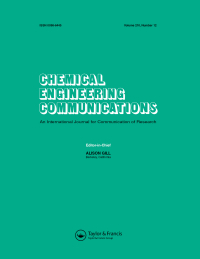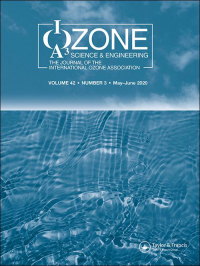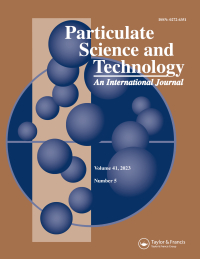Trending Topics
Further your chemical engineering developments with data-driven research. Explore top trending topics such as pollution control, renewable energy, decarbonization, energy transition, battery technology, food engineering and more.
Chemical Engineering Communications
Publishes basic, applied and interdisciplinary research on technique and data experimentations as well as theoretical models in chemical engineering.
Explore Chemical Engineering CommunicationsJournal of Microencapsulation
Medline-indexed research on the preparation, properties and uses of encapsulated small and nano particles in medicine, agriculture, photography and industry.
Explore Journal of MicroencapsulationSeparation & Purification Reviews
Covers methods, apparatus, theories and applications for separation and purification topics like adsorption, centrifugation, chromatography and crystallization.
Explore Separation & Purification ReviewsOzone: Science & Engineering
Publishes research on technologies of ozone and oxidation, including treatment of drinking water and wastewater, water reuse and ozone generation.
Explore Ozone: Science & EngineeringParticulate Science and Technology
Publishes papers on both fundamental and applied science and technologies related to particles and particle systems ranging from nanometers to millimeters.
Explore Particulate Science and TechnologyAI in Chemical Engineering
Unlocking the Power Within Data
Industry 4.0 is revolutionizing chemical manufacturing. Today's chemical companies are swiftly embracing the digital era, recognizing the significant benefits of interconnected products, production equipment, and personnel.
Process Integration for Resource Conservation
To achieve environmental sustainability in industrial plants, resource conservation activities such as material recovery have begun incorporating process integration techniques for reusing and recycling water, utility gases, solvents, and solid waste.
Advanced Modelling and Simulation in the Chemical and Biochemical Process Industry
Advanced Modelling and Simulation in the Chemical and Biochemical Process Industry explores modelling and simulation of chemical and biochemical processes at the industrial scale using a variety of approaches.
Numerical Methods in Chemical Engineering Using Python® and Simulink®
Numerical methods are vital to the practice of chemical engineering, allowing for the solution of real-world problems. Written in a concise and practical format, this textbook introduces readers to the numerical methods required in the discipline of chemical engineering and enables them to validate their solutions using both Python and Simulink.
Particulate Drying
Techniques and Industry Applications
In the process industry, understanding the unit operation of particulate drying is imperative to yield products with desired properties and characteristics and to ensure process safety, optimal energy efficiency and drying performance, as well as low environmental impact.
Designing Controls for the Process Industries
Offering a modern, process-oriented approach emphasizing process control scheme development instead of extended coverage of LaPlace space descriptions of process dynamics, Designing Controls for the Process Industries focuses on aspects that are most important for contemporary practical process engineering and reflects the industry’s use of digital distributed control-based systems.
Introductory Elements of Analysis and Design in Chemical Engineering
Introductory Elements of Analysis and Design in Chemical Engineering introduces readers to how chemical engineers think. It explains the application of analytical methods to phenomena important in chemical engineering and teaches analytical skills in the context of engineering design.
Ethical Engineering
A Practical Guide with Case Studies
Ethical Engineering: A Practical Guide with Case Studies provides detailed and practical guidance in making decisions about the many ethical issues practicing engineers may face in their professional lives.
Introduction to Software for Chemical Engineers
The field of chemical engineering and its link to computer science is in constant evolution, and engineers have an ever-growing variety of tools at their disposal to tackle everyday problems.
What Every Engineer Should Know About Python
Engineers of all disciplines can benefit from knowledge of Python. This powerful programming language can help engineers better leverage their skill set and do more sophisticated work in a shorter time, including engineering analysis, machine learning, system design, integration and testing, and project management.
Biohydrometallurgical Recycling of Metals from Industrial Wastes
Although many available metal recycling methods are simple and fast, they are also expensive and cause environmental pollution. Biohydrometallurgical processing of metals offers an alternative to overcome these issues, as the use of biological means not only helps to conserve dwindling ore resources but also fulfills the unambiguous need to extract metals in nonpolluting, low-energy, and low-cost way.
 Africa
Africa  China
China  Japan
Japan 

















